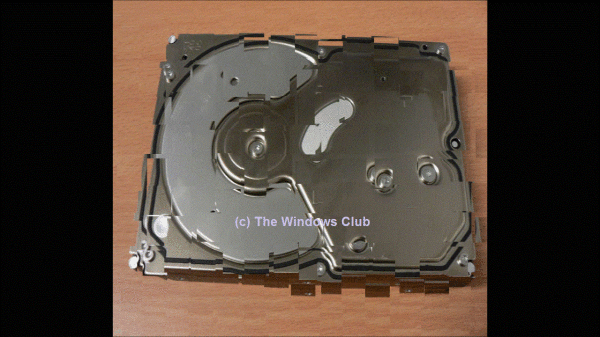Over time, you store plenty of data on your computers. If you wish to sell them, you should never sell them as such. There are dangers of data theft and misuse. At least, you will have people know about you and your secrets. At most, you may land up in jail because someone used your identity based on the data you left back on your computer hard drive. But you did delete all the data on the hard drive before selling off your old computer, or before donating it to a charity, right?! So how can anyone steal data that does not exist?
How to dispose Of Old Computers Securely
If you decide to throw away, get rid of, gift, donate, sell or dispose of your old computer, laptop or any device, you need to follow a few guidelines for keeping your identity and your data safe. In this article, we will talk about how to recycle or dispose of old computers, laptops or other computing devices.
Things to do before you sell or gift your PC
The usual suggestions are:
- You should back up your files & data to an external drive
- Reset your PC
- Visit Microsoft.com and remove this device from your account.
This may be fine, but there are a few things you should know.
Delete Command Will Not Help
Data deleted using the Windows delete option is not data deleted in real. Neither does the DOS nor Powershell “Delete” command, or “Erase” command can remove data from your hard disk. Windows maintains a log file (file system) to know where it stored a particular file. This file was called FAT in MS-DOS, FAT32 up till Windows XP and from XP onwards, it is called NTFS. Whatever operating system you use, it uses a filing system – that allows it to check out where a particular file is stored – when you initiate an open or write operation. The same file is consulted before storing a new file or when the material is added to an existing file. When you initiate a write or save operation, Windows checks the file system for free space (kind of – what is the address of next available free sector on what track of which disk)!
When you delete a file, Windows or any other operating system simply removes the entry from the file system – making that address free for writing another set of data. Until and unless the operating system writes any data over that space, previous data is there and can be easily undeleted using special forensic tools. So then, how should we dispose of or sell computers – new or old – that we no longer need.
How To Dispose Of Computers? Spoil The Hard Disk
Imagine you need to dispose of some important paper files that you no longer need. What are your options? You can burn it (not feasible considering the re-usability of paper). A better option is to shred it so that the contents are not comprehensible anymore. You can do the same thing with your files on the hard disk. You should not burn it, and I won’t recommend you do that – but sure, many prefer to physically dent the hard disk drive with a hammer! You also don’t need to wipe SSDs because of TRIM.
You sure can shred the files using some software. Anti Tracks, CCleaner and Comodo System Cleaner are some programs that shred files one at a time. You can use them to shred particular files. KillDisk and DP Wiper are disk wipers in the sense that they shred all the files on a hard disk in one or more passes. The major difference is that you need not to select each file separately.
Read: How to wipe Hard Disk and MFT clean to prevent recovery of deleted files
Formatting won’t help
Formatting helps to a certain point. Since the mechanism used to store data on the hard disk is to create scratches representing ones and zeroes, it is still possible for forensic software to recover disk images and thereby, your data. In many cases, when a hard disk is accidentally formatted or damaged due to some reason, there are experts who can recover disk images for you. The same technique can always be used to recover and misuse your data.
Further, if you used Quick format, it won’t change anything on your hard drive except for deleting and creating a new file system for that particular drive. Keeping this in mind, you need to shred files on your hard disk before you dispose of your computer or even any type of storage you have been using (including CD-ROMs/DVDs/Blu-Ray, etc.). While you cannot shred the optical media, you can always destroy them physically to prevent data misuse.
How Do I Shred My Hard Disk?

Shredding refers to a technique where the space on the hard disk is written with some random characters so that the data underneath becomes unrecoverable. As discussed above, there are certain software that helps you do this. The more passes you use for shredding (or wiping as it is better known), the more secure you are against data theft.
There are several freeware that will let you delete files permanently. Microsoft has recommended KillDisk and DP Wiper on its page explaining how to dispose of old computers. You can also go for a certified Microsoft Refurbisher who will make sure that all your data is removed from the sold/donated computer before it is given to someone else.
If you are using a smartphone, make sure that you log out of all your online accounts, remove your photos, uninstall all installed apps, and then factory reset the device, before you dispose it off.
Also read:
- How to properly dispose of electronic devices like Phone, Smart TVs, etc.
- Precautions to take before sending your PC or Laptop for repair.
